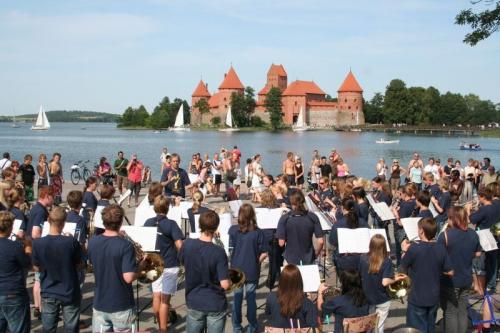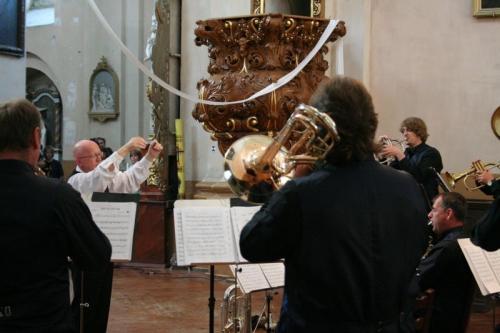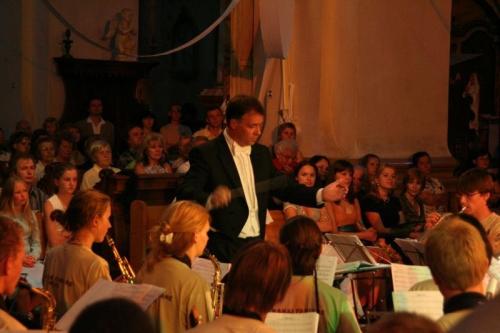The 2008 Trakai Fanfare Week in Lithuania was really terrific again this year, with a dedicated team of tutors working with about 60 students, mostly Lithuanian, but also musicians from Estonia, Latvia, Slovenia,Austria and a euphonium player from Columbia !!!
First pictures now in the gallery on this site
Watch my Youtube video diary too! ( this is a new link):
http://uk.youtube.com/watch?v=FiOUP14W33E
If you are a Brass player and fancy attending the course next year, make a note to be there, as it’s a holiday with music whose memories will last a lifetime.
Trakai city
The town as well as its surroundings started developing in the XIII century as a state centre. According to annals, Grand Duke Gediminas after a successful hunt found a beautiful place not far from the then capital Kernavė and decided to build a castle here. That is how a new castle was built in Senieji Trakai which at that time was called Trakai. The town of Trakai was first mentioned in German annals in 1337, which is regarded to be the official date of its foundation. When Grand Duke Gediminas finally settled in Vilnius, Senieji Trakai was inherited by his son the Duke Kęstutis. This is the birthplace of the most famous ruler of Lithuania - Vytautas Didysis.
During the reign of Kęstutis Naujieji Trakai was a place of intensive construction: one castle was built in the strait between lakes Galvė and Lukos, another one - on an island in lake Galvė. A village grew around the castle. The approaches of Trakai were protected by Senieji Trakai, Strėva, BraĆŸuolė, Daniliškės and other mounds. When Vytautas became the vassal ruler of the Grand Duchy of Lithuania, Trakai became a political and an administrative centre. Construction of the castles was finished and a catholic church was built. The distinctive feature of Trakai is that the town was built and preserved by people of different nationalities. Here lived communities of Karaites, Tartars, Lithuanians, Russians and Polish. Both Christian and Karaites communities were granted separate self-government - Magdeburg - rights.
Trakai lost its political significance in the XVI century. It also declined economically. During the war with Russia in the XVII century the town was plundered and burnt, the castles were destroyed.
The island castle was rebuilt in the second half of the XX century. There has been a history museum in the castle since 1962. In summer different festivals and concerts take place in the island castle.
Trakai is a town built on water. The town is surrounded by Lukos (Bernardinų), Totoriškių, Galvės, Akmenos, Gilušio lakes. There are a number of architectural, cultural and historical monuments in Trakai.


 conductor Bert Langeler in action - 20080728220448.jpg
conductor Bert Langeler in action - 20080728220448.jpg
![]()


